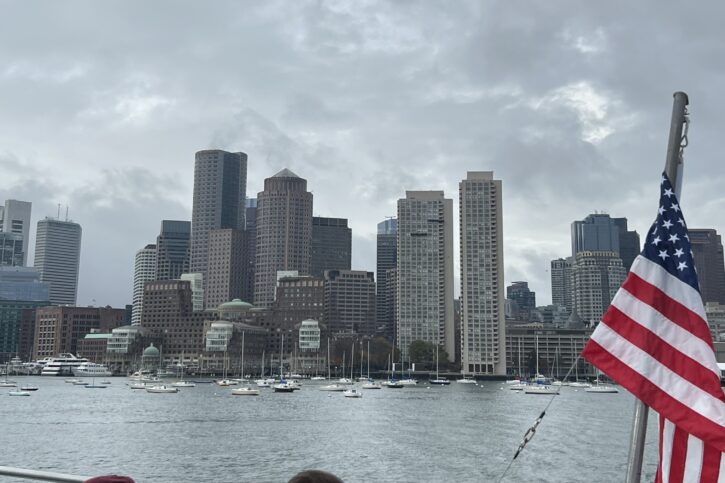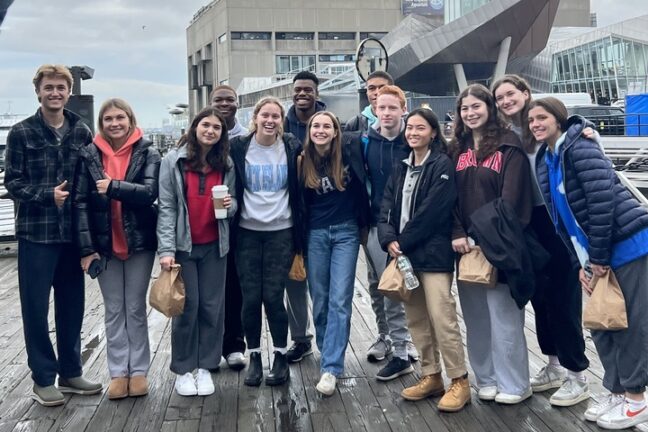Class: Marine Ecology
Grades: Upper School
Teacher: Michelle Wildes, Mary Brooks
The Upper School Marine Ecology class set sail to go whale watching this week after studying local marine life and the impact of human activities on endangered species. For a majority of the class, this was their first time whale watching. As students boarded the Asteria and set sail for Stellwagen Bank National Marine Sanctuary, the excitement was evident.
It is approximately 21 miles from Boston to the sanctuary’s western border. The sanctuary, which occupies 842 square miles of ocean, stretches from three miles south of Cape Ann to three miles north of Cape Cod. As the boat traveled to the area, tour guides spoke to students about how the organization observes wildlife in a responsible and sustainable way.

Prior to the trip, Marine Ecology students participated in an activity designed to give them a better understanding of how human activities have impacted the survival of the endangered North American right whale population. By analyzing real data and simulated population data between whales with human interference and whales without, it became clear how devastating human interference can be to whale populations.
Out at sea, students were lucky to observe over 10 different whales engaged in various activities. Most sitings started with noticing a spout, the cloud of air and water vapor that sprays above the surface when a whale exhales. These spouts would often lead to the whale logging, diving, or rounding out. Most humpback whales spotted surfaced in pairs or trios, which helped the guides identify each individual whale and give a brief overview of their recent activities in the area. One such whale, Orion, is a 44 year old male that has been spotted in the area for several years.
I understood everything the guide was saying about whales, which was cool because it applies to both real life and the class.
-Marine Ecology student
In the video below, students Rebecca Goodman ’23 and Caroline Ewald ’24 give an overview of the whale watching excursion from the Asteria!
View this post on Instagram
Course description: Ecology is all about relationships and interconnections. In this course, students will focus on the interdependence of living marine organisms (biotic factors) and their ocean environment (abiotic factors) and how energy flows through Earth’s systems and connects us to all living things. Topics interwoven throughout the course include: biodiversity, interdependence, chemical cycles, population biology, trophic structure, predation, competition, symbiosis, climate change and human impacts. We will use collaborative modeling, experimental design, current research, and field experiences to deepen our understanding of marine science. Field trip experiences to places such as New England Aquarium and/or Northeastern University’s Marine Biological Laboratory will help support our learning by exposing students to real world marine research. Prerequisites: Chemistry Foundations and Biology Foundations. Honors section with departmental permission.

